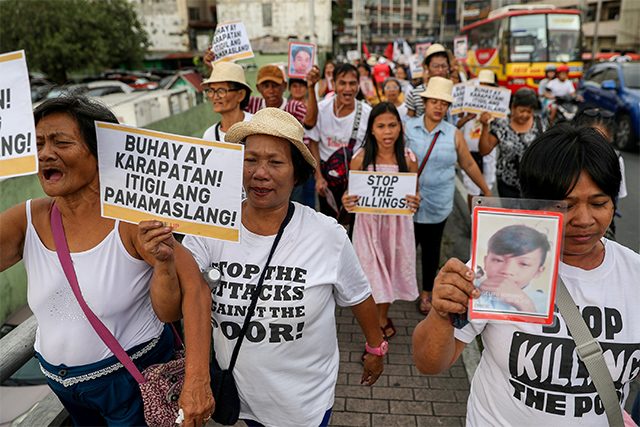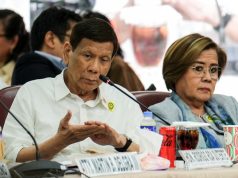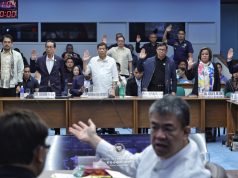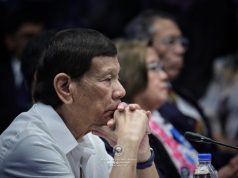
GENEVA — U.N. rights experts and activists called on Tuesday for launching an international investigation into unlawful killings in the so-called war on drugs in the Philippines and for the International Criminal Court to step up its preliminary probe.
Sanctions should be slapped on officials responsible for inciting killings or failing to prevent them, said Agnes Callamard, U.N. special rapporteur on extrajudicial, summary or arbitrary executions.
Callamard, speaking on a panel, read out a statement issued by 32 U.N. experts in late June, which she told Reuters “is as relevant as ever” as the Human Rights Council meets in Geneva.
Tens of thousands of people in the Philippines may have been killed in the war on drugs since mid-2016 amid “near impunity” for police and incitement to violence by top officials, the United Nations said in a landmark report in June.
The chief presidential legal counsel and presidential spokesman did not respond immediately to Reuters’ requests for comment. Presidential spokesman Harry Roque said last June that the “rehashed claims” of impunity were unfounded.
The U.N. report said the drugs crackdown, launched by President Rodrigo Duterte after he won election on a platform of crushing crime, has been marked by police orders and high-level rhetoric that may have been interpreted as “permission to kill”.
Callamard urged the 47-member forum to “establish an on-the-ground international investigation”.
“I call on the International Criminal Court to prioritize the completion of its preliminary examination of the situation in the Philippines,” she said.
She urged states to “apply sanctions against individual Filipino officials who have committed, incited or who have failed to investigate or prevent human rights violations including arbitrary killings.”
Iceland, working with the Philippines, is proposing a resolution for consideration at the Council next week. But activists said that the draft text, which calls for technical cooperation, was weak as it fails to establish an international investigative mechanism.
“The Philippines is hell-bent on getting itself off of the Human Rights Council agenda by any means except for actually improving the human rights situation on the ground,” said Laila Matar of Human Rights Watch.
Rachel Chhoa-Howard, Amnesty International researcher, said: “Despite increased international attention over the years, killings continue and there appears to be no end in sight to the trail of blood.”
“Amnesty and others definitely believe that the situation meets the threshold of crimes against humanity,” she said, urging the Hague-based ICC to complete its probe this year.
—Reporting and writing by Stephanie Nebehay; additional reporting by Neil Jerome Morales in Manila, editing by Raissa Kasolowsky









